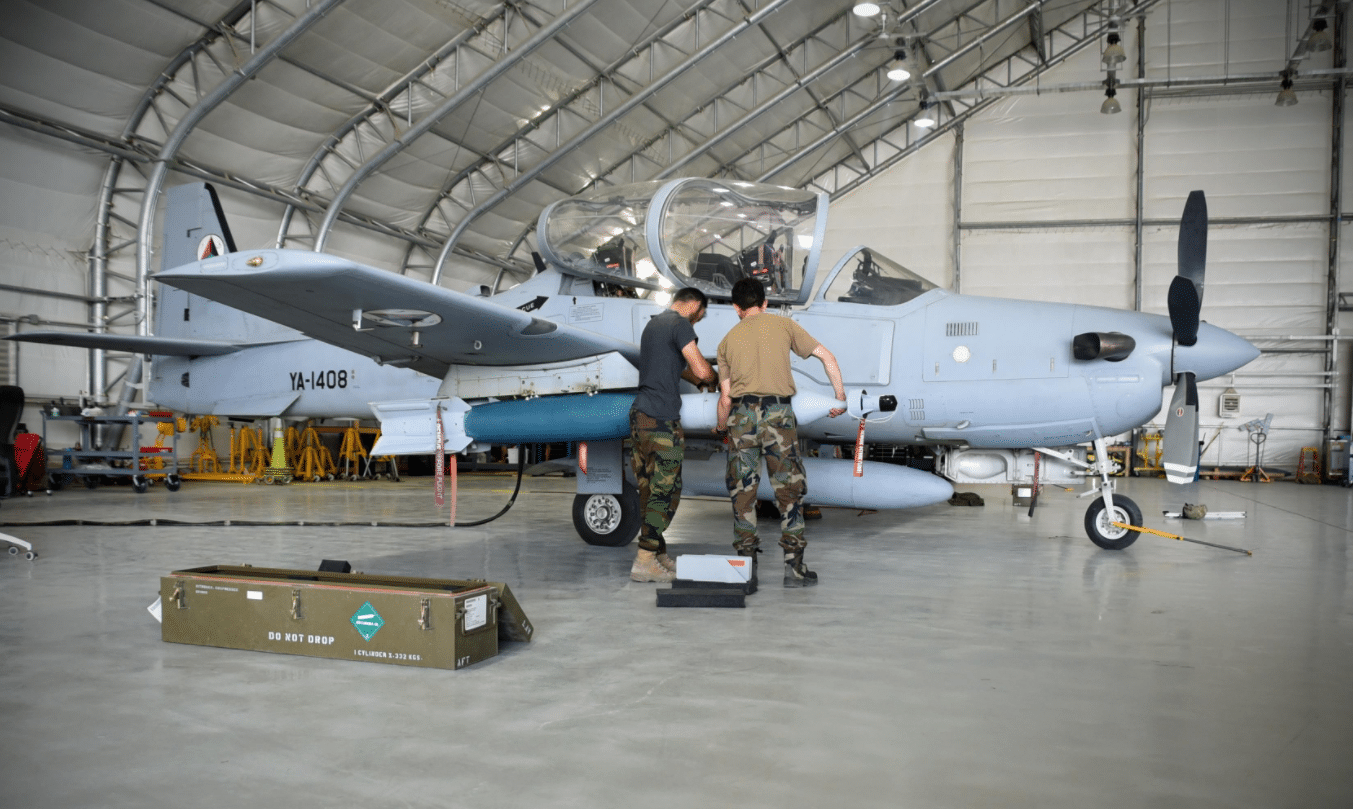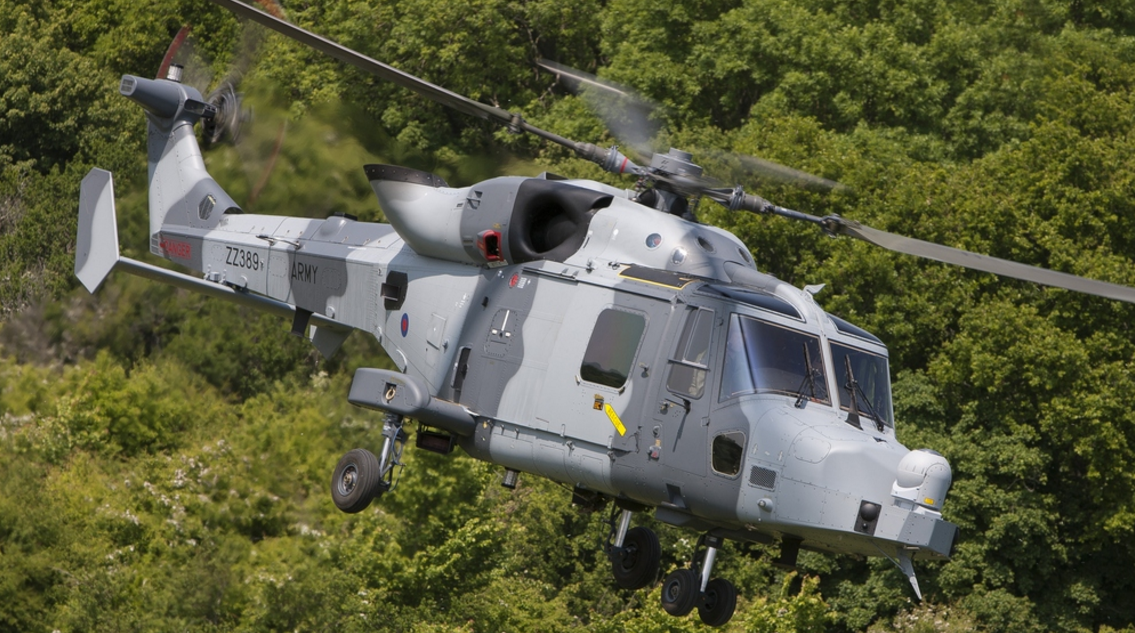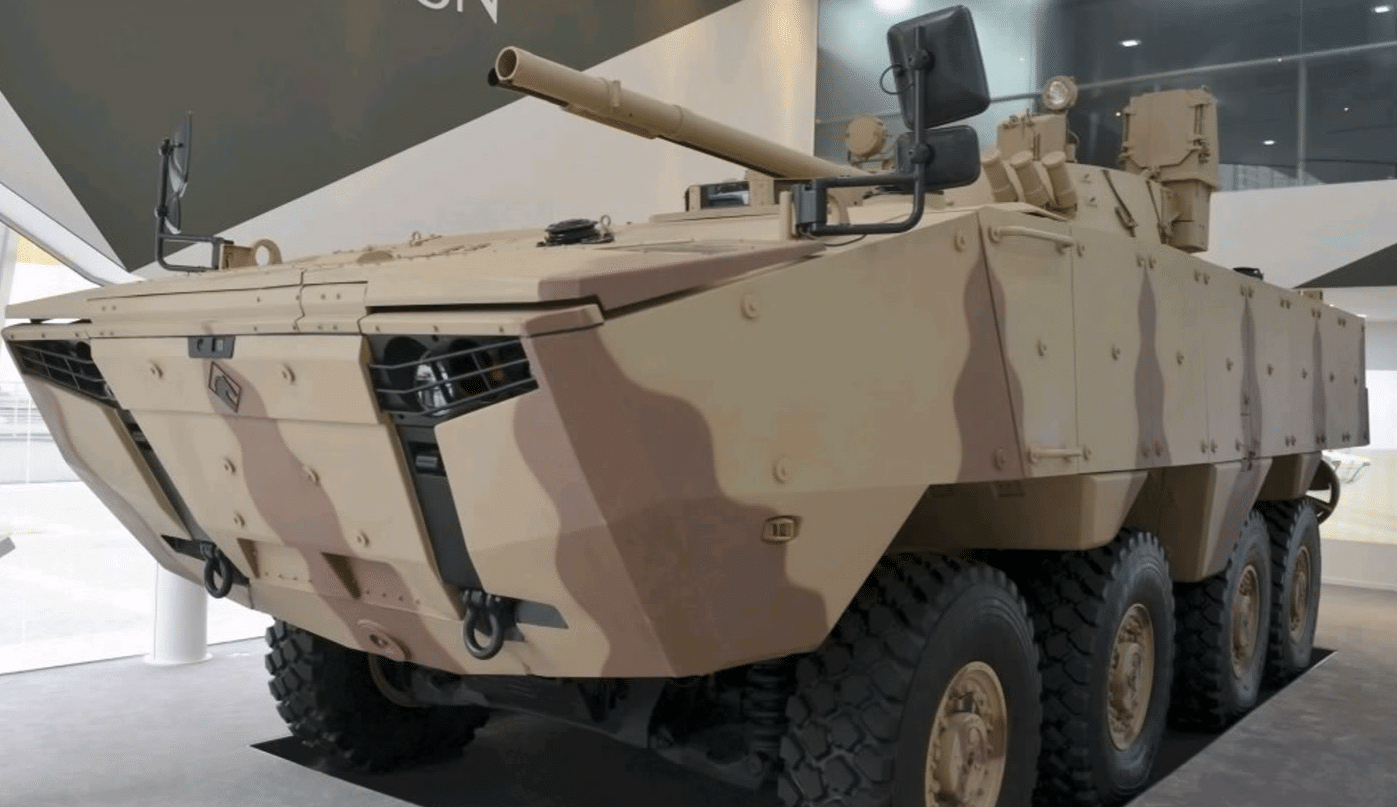2186Views 10Comments

Afghanistan will take on flight line maintenance of A-29 combat aircraft
The Afghan Air Force (AAF) requested to assume full responsibility for flight line maintenance of its Sierra Nevada A-29 Super Tucano light combat aircraft from TAAC-Air (Train, Advise, Assist Command-Air). TAAC-Air is a U.S.-led multi-national mission to train and build the physical capacity of the AAF.
TAAC-Air has been responsible for training AAF ground personnel for maintaining the A-29s, which it had procured under a $427 million U.S. assistance program. The first aircraft were delivered in January 2016 and had begun combat operations in Afghanistan in April 2016. The AAF has 12 of the 20 allotted A-29s.
AAF personnel are responsible for flying the A-29s in combat operations, which are close air support (CAS) missions in support of Kabul’s counterinsurgency (COIN) campaign against non-state actors. However, the maintenance of A-29s is mostly managed by TAAC-Air.
In a U.S. Air Force news release, Maj. Dale Ellis, the 440th Air Expeditionary Advisor Squadron (AEAS) maintenance operations officer was quoted saying, “Several of the [AAF] flight and squadron level leaders approached advisors and stated that they felt they were ready for full responsibility on the flight line. “
However, as per the U.S. Air Force TAAC-Air is still responsible for 80% of all A-29 maintenance functions, though it aims to reduce its role to 20% by 2022. The 440th AEAS’ maintenance advisor lead Master Sgt. Jonathan Vickery stated, “Our original plan was to increase responsibilities one day every six months.”
Over the next several years, TAAC-Air will impart the AAF with the requisite skills to maintain the A-29’s avionics and aircraft munitions. In time, TAAC-Air hopes to see the AAF’s training capacity become self-sustaining such that training is done internally through local personnel.
The U.S. Air Force has three maintenance competency levels, with ‘level-one’ being the most qualified to review the A-29’s technical material and training other technicians. On July 27, eight AAF personnel were awarded ‘level-one’ status, and will assume some training responsibilities from TAAC-Air.
The A-29 – also available as the Embraer EMB-314 Super Tucano – has a payload of 1,550 kg through five external hardpoints. It can deploy laser-guided bombs and INS/GPS precision-guided bombs. Powered by a single Pratt & Whitney PT6A-68/3 turboprop engine, it has a cruise speed of 520 km/h.
The Sierra Nevada A-29 is among several lightweight CAS aircraft in use for COIN operations in the Middle East and West Asia region. The U.S. Air Force is testing the A-29 alongside other platforms as part of its OA-X initiative, which – depending on the results – may see the U.S. Air Force adopt a platform.



10 Comments
by Omar Dar
Lol. Expecting A-29 Tucano parts to becoming available very soon in the Barra market after maintenance is handed over to the AAF.
by mazhar
Correct and LOL.
by jigsaw
lol
by Steve
Do they AAF actually have pilots? Or is it all American contractors.
by Bilal Khan
Afghan pilots.
by Bilal Khan
They’ll probably return to the AAF as there’s no one else in the region using those planes.
by Syed Bushra
If the prices are decent then I might buy a few as mementos. 🙂
by Steve
Old joke: /Brother how much petrol your plane is having?
-I am not knowing check tank.
/Brother I am open tank and no torch to see petrol. I use match!
-No no!!!
BOOM!!!
by jigsaw
haha…right.
by Omar Dar
I think the AAF has trained some Afghanis as pilots. I’m not sure how effective they are but the Americans have invested a lot to build up their capacity.